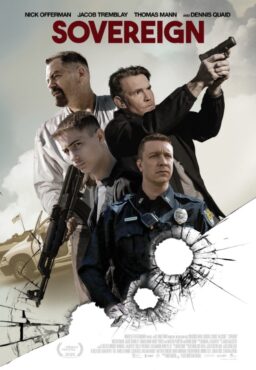Pieces of time. That’s what the movies have been called. Usually they begin with the first piece and continue with the second piece, onward to the inevitable conclusion. But currently there’s a small group of filmmakers who don’t think that way. They shuffle the deck. You can’t put all the pieces together until the movie is over. It’s challenging, and it can be fun.
Atom Egoyan is a director like that. Some directors make movies like onions, peeling off one layer after another. He works in the opposite way. His new movie, “Exotica” (at the Fine Arts), reconstructs the onion, one layer at a time. It starts with small pearls of a story that seem mysterious and unconnected, and gradually the whole form becomes clear. It’s a curiously satisfying experience.
Egoyan is a filmmaker from Toronto, in his 30s, whose work (“Next of Kin,” “Speaking Parts,” “Calendar,” “The Adjuster“) is familiar on the festival and art house circuits. With “Exotica,” he is finding a wider audience. It won the Cesar as the year’s best foreign film in France, has set box office records in Canada, and arrives here with ads and trailers that make it look like a sex-soaked thriller.
“They made a great commercial for the film,” he was telling me the other day. “They cut from one character with a gun to another one with something strapped around his waist.” So maybe the viewers figure the guy has a bomb strapped to himself, right? Are they in for a surprise when they find out it’s birds’ eggs.
“Exotica” begins with disconnected pieces. A scene in airport customs. A scene in a sex club, where a table dancer and her client have a strange rapport. A scene in a pet shop. A weird conversation between the sweet woman who runs the sex club and its Satanic disk jockey. How are these people connected?
Egoyan’s “Exotica” goes on the list with other recent films, including Quentin Tarantino‘s “Pulp Fiction,” Krzysztof Kieslowski‘s “Red” and Milcho Manchevski‘s Oscar-nominated “Before The Rain.” All four burrow into the labyrinths of time. They double back on themselves. They present scenes that seem to say one thing, and actually say another. They bait and switch. “There’s a sense of predetermination with most movies,” Egoyan was telling me. This was last week when he visited Chicago to preview his movie for the Film Center and the Chicago Film Festival. “The movie begins. You know it’s going to end in 90 minutes. No matter where it may go, its course is set. So there’s something fatalistic. To try and reorient that, to create a sense of play, is such a natural challenge.”
That’s what he does in “Exotica,” and it’s breathtaking the way the plot reveals itself, and we see how the characters are related, in the present and the past.
The most enigmatic relationship is between the dancer in the sex club (Mia Kirshner) and her client (Bruce Greenwood). They meet in a place that drips with sex, but finally sex has nothing to do with the bond between them. We sense tenderness and sympathy on her part, a wounded need on his. Two other characters also seem related through sex – a gay man picks up a partner at the ballet – but they, too, are revealed to have a different kind of connection.
The club advertises, “Look, but don’t touch.” In “The Adjuster,” Egoyan’s 1991 film, a film censor secretly videotapes X-rated movies, so she can show them to her sister. “I’m voyeuristic myself,” Egoyan said, “and I think anyone who’s making films would be lying if they said they weren’t. That’s what films are all about: Watching people behave. Directing is about orchestrating things you would like to see happen.”
And, he might have added, in the way you would like to see them happen. In a sense, “Pulp Fiction” jarred the movie audience awake, telling them, hey, movies don’t just start and grind away. They’re free to leap around in time. With “Exotica,” Egoyan is pushing the same envelope. As the plot reveals itself, as surprise dovetails into surprise, we are required to be so alert, so observant, that it’s like we’re making the film, too. Watching at his side.











